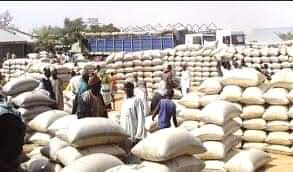The use of pesticides is a major issue in farm safety, for a number of different reasons. Pesticides are used widely in all types of agricultural settings, most mostly farms, orchards, forests, nurseries and greenhouses.
Farms use pesticides on a different number of crops, and are a necessary part of most types of modern-day farming. Orchards use pesticides as a way of preserving and treating fruit, an essential part of its long life.
Nurseries and greenhouses also use pesticides widely, many different plants need to be protected against different types of insects and bugs, and pesticides are often the only way to do it
The use of pesticides raises special concerns in terms of health and safety, both for the people who use pesticides, and anyone who may come into contact with any land plants or vegetable that has been sprayed with pesticides.
Pesticides vary in terms of their severity, but they should be thought of as potentially dangerous chemicals, and treated with the utmost caution. Depending upon where the farm or agricultural practice is located, there will be different statutes that regulate the use of pesticides,.
There are a number of common features that relate to how pesticides should be used, and what is considered best practice in terms of advice and guidance for people who are responsible for their usage.
The use of pesticides is not simply someone spraying them onto some plant or tree, the use of pesticides usually involves a number of different people who handle pesticide at different times.
Such handling can include transport pesticides, mixing of them, the loading onto a particular vehicle or sprayer and in the application of the test site to the relevant area.
Best practice indicates a number of minimum standards should apply. Any business using pesticides should have a clear policy concerning all the areas of their preparation and usage. Such a policy should be clearly written out and posted at all relevant points where pesticides are likely to be handled.
In addition, the pesticide policy should be already conveyed all people in the formal business who may either use pesticides, or come into contact with any type of produce that has had pesticide sprayed on them.
In addition to a written policy, all staff in the business should have some type of formal pesticide training. This should cover the different types of pesticides likely to be used in business, the correct way to handle and apply them and most importantly, what do in the event of an emergency either by ingestion or any other way someone has come into unsafe contact with them.
Aside from the training, which should be done as a formal process and on a regular basis, there should be pesticide safety posters put up throughout the physical location of the business reinforcing the most important point made during the pesticide training course.
Many businesses that use pesticides have some type of decontamination facilities, and any such site should be carefully thought through and workers in the business thoroughly appraised of how it works.
It is widely understood that many farms and agricultural businesses are located in rural settings, in places that would take emergency services a long time to get to.
With pesticides, it is important to have posters up giving detailed information of what do the event of an emergency. There are normally public health information sites which can give specialist advice on the ingestion or absorption of poisons, which may well, pesticides. If there is such a national or local phone number should be listed on the poster as well.
Best practice would also have small cards with this telephone number that could be displayed or kept in machinery such as tractors are in areas of land where no posters could be put up.
Article Source: http://EzineArticles.com/10325926








